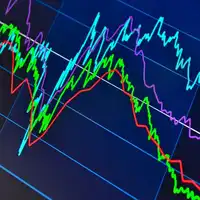
Introduction to Fundamental Analysis
Fundamental analysis is a method used in forex trading to evaluate the intrinsic value of currencies by examining economic, financial, and geopolitical factors that may influence their value. It involves analyzing macroeconomic indicators, central bank policies, geopolitical events, and other relevant factors to make trading decisions based on the underlying fundamentals of the currency.
Economic Indicators and Their Impact on Currencies
Economic indicators provide valuable insights into the health and performance of an economy, which can impact currency values. Some key economic indicators include GDP (Gross Domestic Product), inflation rates, employment data, retail sales, and trade balances. Positive economic indicators, such as strong GDP growth or low unemployment rates, often lead to currency appreciation, while negative indicators can lead to currency depreciation. Traders analyze these indicators to gauge the strength of an economy and anticipate potential currency movements.
Central Bank Policies and Interest Rates
Central banks play a crucial role in shaping monetary policies and influencing exchange rates. By adjusting interest rates and implementing various policy measures, central banks aim to maintain price stability, stimulate economic growth, and manage inflation. Changes in interest rates can have a significant impact on currency values. Higher interest rates tend to attract foreign investors seeking better returns, leading to currency appreciation, while lower interest rates can have the opposite effect. Traders closely monitor central bank announcements and decisions to understand the potential impact on currency markets.
Geopolitical Events and Their Influence on Forex Markets
Geopolitical events, such as political instability, conflicts, elections, and trade disputes, can have a profound impact on forex markets. These events can create volatility and uncertainty, affecting investor sentiment and currency values. Traders carefully assess geopolitical developments to anticipate potential market reactions. For example, heightened geopolitical tensions may lead to safe-haven flows into currencies like the Swiss franc or Japanese yen, while positive developments in trade agreements can strengthen currencies of countries involved.
Incorporating Fundamental Analysis in Trading Decisions
Fundamental analysis provides a foundation for making informed trading decisions based on the underlying economic factors and market sentiment. Traders who utilize fundamental analysis study economic indicators, central bank policies, and geopolitical events to assess the overall market conditions and determine potential currency movements. By combining fundamental analysis with other trading strategies, such as technical analysis, traders aim to identify opportunities and manage risk effectively.
It’s important to note that fundamental analysis requires continuous monitoring of economic data releases, news updates, and geopolitical developments. Additionally, traders should consider both fundamental and technical factors to gain a comprehensive understanding of the market and make well-rounded trading decisions.




